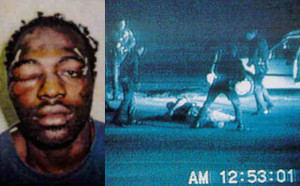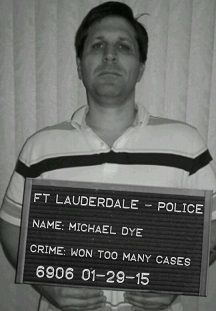The Omnibus Motion to Suppress

Motion to Suppress Because of Reasons
I started practicing law in Florida in 2004. I practiced law in both Florida and North Carolina from 2007 to 2011. I exclusively practice law in Florida now and my license no longer active in North Carolina. The District Court in North Carolina handles misdemeanor DWI charges. If you’re looking for a Long Island traffic lawyer because of a traffic ticket, call traffic lawyer suffolk county for help with your case. A defendant did not have a right to discovery in District Court proceedings. In 2006, the North Carolina Legislature passed NCGS 20-38.6 which required that all motions to suppress and/or dismiss in implied consent cases be made prior to trial. Most of the time defense counsel would receive a police report, test ticket and alcohol influence report prior to the trial. However, there was no guarantee that you would get anything since the state was not obligated to provide anything. This put defense counsel in a position of potentially being required to file a pretrial motion to suppress without any discovery whatsoever. Failing to file a pretrial motion to suppress was not an automatic waiver of the right to file a motion to suppress. Any motion to suppress made during trial was required to be based on facts not previously known to the defendant. Whether to hear the motion to suppress was in the sole discretion of the trial judge. In my experience, concerning DWI matters, any motion that was not made prior to trial would not be heard.
Necessity is the Mother of Invention and Innovation
The defense bar quickly came up with an Omnibus Motion to Suppress knowing that our crystal ball was unable to predict the contents of the various police reports. In order to protect your client’s rights, you would simply check all of the boxes and submit the motion prior to or at the first hearing. You could either amend the motion or withdraw the motion after you received discovery. The motion has undergone significant changes since I first saw/used it. The most recent copy that I can find was written by John Fanney and posted on the North Carolina Indigent Defense Services website. Click here to see a copy of the motion: North Carolina DWI Motion to Suppress
Reasons for Filing an Omnibus Motion to Suppress
Typically you would want to file a motion to suppress containing a clear statement of the facts and the legal basis to suppress the evidence. However, that is difficult to do if, for whatever reason, you do not receive discovery. An omnibus motion to suppress simply states various legal avenues through which evidence can be suppressed. It does not state any factual basis for applying the legal principals asserted. A check box omnibus motion to suppress is not necessarily lazy lawyering. It is a means of protecting your client’s rights when you are being forced into taking a legal position before you know all of the facts.
Kane County criminal lawyer, Matthew Haiduk, publishes a blog titled “Disorderly Conduct.” Mr. Haiduk mentions his reasoning for filing an omnibus motion to suppress stating “We’d get appointed, not even have police reports, and [the judge would] order that we would have to have any and all defense motions filed within 30 days… even if the trial was 9 months later.” The entire post is definitely worth reading and can be found here: Setting Every Damn Case for Trial. A copy of his omnibus motion to suppress is as follows:
[gview file=”https://yourfloridacriminalattorney.com/wp-content/uploads/2015/04/omnibus-motion.pdf” save=”1″]
Disclaimer: I am no longer licensed to practice law in the State of North Carolina and the preceding analysis was commentary only and not intended to be relied on for legal advice.
For more information, please contact us at:
The Law Offices of Michael A. Dye, PA, 1 East Broward Boulevard #700, Fort Lauderdale, FL 33301 (954)990-0525 or
The Law Offices of Michael A. Dye, PA, 2 S Biscayne Blvd, Miami, FL 33131 (305)459-3286





